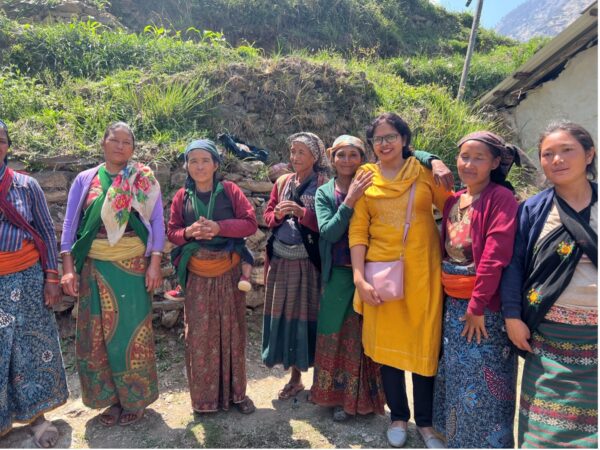A dedicated team from the Adventist Church’s Himalayan Section Women’s Ministries department conducted women’s health awareness seminars in Taksera, Lumbini Province, a remote area in western Nepal, on May 28.
The team, led by Shanti Pokharel, women’s ministries director of Nepal, Rabina Dhakal, and Mina Kumari Rai, left Kathmandu, the capital city of Nepal, and traveled to Taksera.
During their stay, the team interacted with local women, teaching them about personal hygiene, healthy lifestyle, good food habits, and maintaining a clean home and surroundings to stay healthy and prevent serious illnesses. They also provided Bible studies, emphasizing the importance of a personal connection with Christ through reading, praying, and sharing their faith.
The seminars highlighted the significant role of women in the family and how to keep their faith alive in various situations, especially in places like Taksera, where basic human needs are scarce, and people live in poverty and illiteracy. The area is plagued by social evils such as child marriage, divorce, family violence, smoking, drinking, gambling, and superstitions.
The team conducted health checks, including blood pressure, sugar levels, and weight, encouraging the women to have regular health checks to prevent serious illnesses. They taught that the body is the temple of God and needs to be kept holy. The team praised God for the women who accepted Jesus and were baptized during the visit.
Taksera’s geographical location contributes to its harsh living conditions. The village has a cold climate and rocky, stony land, allowing only one crop yearly. People can survive for only four months on the harvest and depend on animals for meat and milk. Most men leave home for manual jobs for six months or even years, leaving the women to care for the home, children and the elderly, farms, and cattle.
Women work harder than men and often do not receive proper nutrition or medical attention during pregnancy, resulting in many deaths during childbirth. Due to the problematic lifestyle, people age prematurely. Many children do not attend school due to the distance or poverty, staying home to help their mothers with cattle grazing or household chores.
The team distributed Bibles to adults who could read and Bible story books with pictures to children. During the mission trip, they baptized three girls. Despite the long drive on rough mountain roads, God was present in their mission, leaders reported. The area is almost cut off from the outside world during the rainy season, so visits are only possible in the summer.
Despite living in deep poverty and lacking basic human needs, the people of Taksera have been touched by God’s light and need guidance and visitation, leaders said. Education could transform the area, and helping children attend school in their village or boarding schools would be a significant step forward.
The original version of this story was posted on the Northern Asia-Pacific Division news site.





